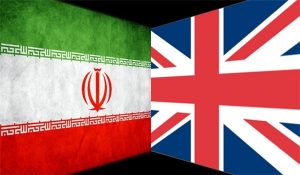“Churchillian” Foreign Policy Since 1945: Imperial Establishment’s Ideological Adjustments to Managing British Power, and Interests in Post Colonial Britain.
The imperial decision makers in London after the Second World War, proceeded with an accelerating and disciplined process of granting full political independence to all the Empire nations starting with India in 1947 and virtually completing the programme of decolonisation by 1963. However, the ex-colonies were encouraged to retain the old connections against such a dangerous and rapidly changing world. The persuasion of the British political elite led to the acceptance by most of the ex-colonies of the retention of the historical ties with the United Kingdom. The decision to maintain close links with Britain was embodied principally in practice by their incorporation in the British Commonwealth whose members up till then comprised only the white Dominions. The incorporating of the newly independent nations and states (ex-colonies) in Africa and Asia post-1945, into the British Commonwealth led to this now multi-racial institution becoming known as the Modern Commonwealth or just the Commonwealth, which was defined in Chapter Three.
The retaining of the historical ties by the former colonies with Britain was one of the triumphs of the Labour Government of 1945-51 and more to the point of Ernest Bevin, the Labour Foreign Secretary. In 1950 during the first meeting of the Commonwealth Foreign Secretaries in the Sinhalese capital of Colombo, Ernest Bevin, one of the greatest supporters of British imperial power managed to harmonise Labour’s socialist and anti-colonisation with British nationalism and the sense of Empire through the concept and reality of the Commonwealth. Having always believed that the Empire would bring prosperity to the Colonies too, Bevin in 1950 in Colombo, converted his conviction into practice with the successful establishment of the Colombo Plan. Improving the economic and social conditions through Britain’s aid programme in the former Colonies of the Empire was what made the maintaining of imperial ties by the ex-colonies through the Modern Commonwealth of mutual material benefit. This plan was attractive and seductive for the ex-colonies, due to the fact that its effect was to sanction what was expedient now, while at the same time seeming to endorse most of what had been done in the past.
Twenty years on, British aid to the ex-colonies amounted to nearly £500 million, with the largest sum going to communications, education, and agricultural development (£78 million, £72 million and £60 million respectively). A wide range of tasks was assisted, such as road building in Nigeria, land settlement in Kenya, airport construction in the West Indies, the building of a new capital in British Honduras. This represented an investment in political and economic goodwill – but of course was applied in a context where more significant ties still operated (than by mere economic calculation) due to the way in which the political elite had managed the ending of Empire in the decolonisation process. There is, amongst all the Commonwealth members one strong, continuing cultural bond centring on Britain – the use of the English language. In the 1960s about three hundred million people spoke English as their primary language while about six hundred million people spoke English as their primary language while about six hundred million could use and understand it to some degree. English has become a universal language, in commerce, diplomacy, science, aviation, sport and scholarship. Also because of the United State’s rise as a major power too, there has been an even greater spread of the English language through the press, media and the cinema.



